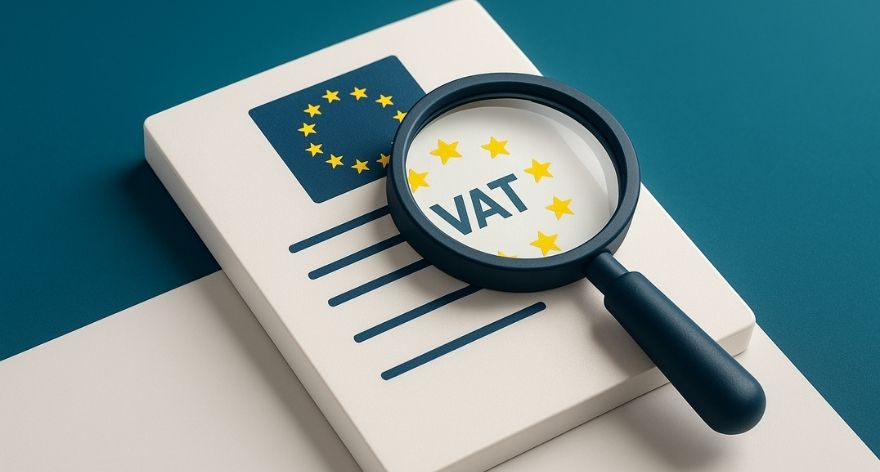Europe is digitalizing at a rapid pace. With the ViDA program (VAT in the Digital Age), the EU is taking significant steps toward real-time VAT reporting and e-invoicing. In this context, checking VAT numbers via VIES (VAT Information Exchange System) is no longer just an administrative formality. It has become an essential part of your compliance process.

What is a VIES check?
Through VIES, you can check whether a VAT number is valid within the EU. This helps you to:
- prevent VAT fraud (for example, carousel fraud)
- apply VAT reverse charge rules correctly
- meet tax obligations for international transactions
A mistake in VAT handling can lead to fines, additional assessments, or hassles during audits. That’s why a VIES check is not an extra step, but a fundamental requirement.
Not just for customers, but also for suppliers
Many organizations only check customers. But it’s just as important for suppliers. A valid VAT number provides assurance about:
- accurate invoicing and VAT reverse charge
- internal compliance and audit trails
- avoiding transactions with unreliable or high-risk parties
After a VIES check you get a consultation number. That number proves that you have carried out the check. Especially in the context of ViDA, this is becoming increasingly important.
ViDA: VAT compliance goes digital-first
The most important changes:
- From July 2030, e-invoicing will be mandatory for cross-border B2B transactions.
- In 2032, a central EU database will be introduced, eventually replacing VIES.
Until then, VIES remains the official source for VAT validation. Companies that don’t perform checks now face risks that are easily avoidable.
Interesting read: NIS2: the new reality for companies in the Benelux and how data can be your strongest defense
Performing VIES checks manually? That takes time.
The manual EU portal works, but it’s not designed for organizations that need to check many VAT numbers regularly. It’s error-prone and hard to scale.
There’s a smarter way.
Automate with Altares & the VIES API
With the Direct+ Data Blocks API made by Altares Dun & Bradstreet you can retrieve VAT numbers directly from company data and then process them automatically via the VIES API.
This provides the following benefits:
- fast and scalable validation of VAT numbers
- automatic recording of the consultation number
- less manual work, fewer errors
- more auditable compliance process
This way, VIES checks become part of your daily workflow, without the hassle.
In summary
A VIES check isn’t just a box to tick. It’s a way to reduce risks and ensure reliability. Automating this process not only makes it easier, but also stronger, and prepares you for the changes ViDA will bring.
Want to explore how this could work for your organization? Get in touch with us.
